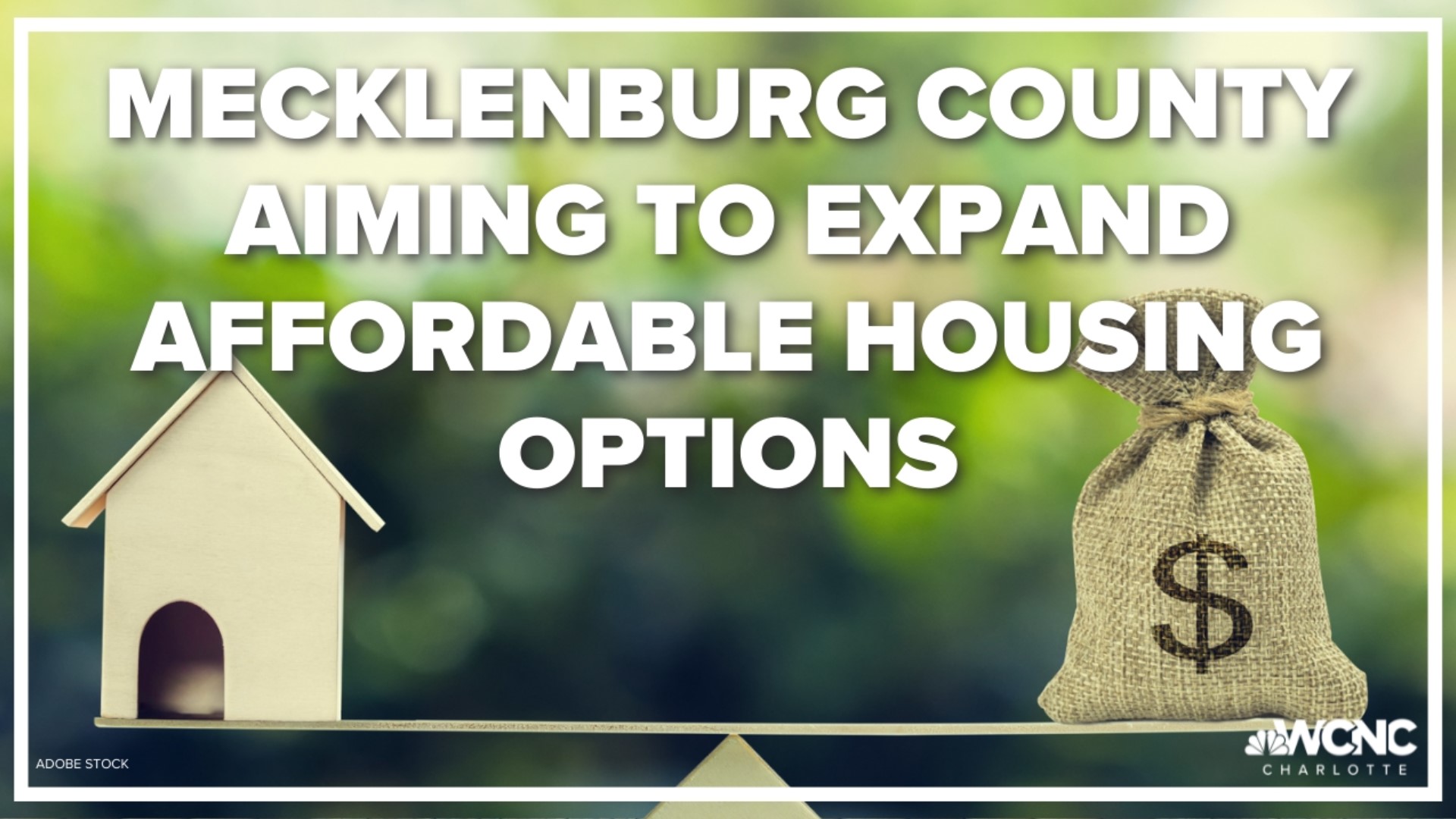CHARLOTTE, N.C. — About 3,000 people are currently experiencing homelessness in Mecklenburg County. The number of homeless people was increasing prior to COVID-19 but the pandemic exacerbated the issue in the local communities and across the country.
The county is working to expand affordable housing options and access to resources for those without shelter.
Moreover, it is in the process of buying its very first hotel that will be renovated and converted into housing for that vulnerable population.
"It is less expensive than purchasing land and developing it from the ground up," Karen Pelletier, Director of housing and homeless services with Mecklenburg county’s community support services, said. "These are existing structures that need conversion and that need some rehab to make them more of a housing unit."
The county is investing $13.6 million of the American Rescue Plan Act Fund to buy and renovate an 80-unit hotel. There will be one and two-bedroom apartments. It will specifically serve people who are homeless, those who are 55 years or older.
WCNC Charlotte is always asking "where's the money?" If you need help, reach out to WCNC Charlotte by emailing money@wcnc.com.
The county will work to make sure that individuals that have the highest vulnerability are matched to that housing.
They’ve had some experience renting hotels as emergency shelters during the pandemic.
"We’d be able to house couples together, parents with adult children that wouldn’t be able to otherwise move into housing,” Pelletier said.
The county will be looking at market rates and residents wouldn't put more than 30% of their income towards rent. Individuals can also use vouchers.
“We know that there's a number of individuals that are unable to work, we'll be moving people in there that are in their 70s or 80s," Pelletier said. "People that have disabling conditions and therefore they may need some kind of social security benefit to help create income. We would have staff there to help them navigate that resource."
Pelletier said there’s a big need for affordable housing for senior citizens. According to the county’s housing data, about 33% of those experiencing homelessness are 55 and older. It is also seeing an increase in homeless adults with medical conditions.
“What we found is that folks at the hotels who were engaged with case managements, they were following up with doctors appointments," Pelletier said. "Sadly people were getting pretty devastating diagnoses.”
The project offers supportive housing just like a nursing home or assisted living. The residents would have a place to call home, steady support, and an opportunity to prioritize their health.
In turn, it cuts down on public costs in the use of shelters, emergency hospitals visits, and jails.
“As people are able to be in a stable living situation, they're more likely to get connected to those primary care physicians, to those specialists and being able to have someone there to help make sure that they're following up with their dialysis or their kidney doctor,” Pelletier said. “So if you need to get connected to Medicaid, food stamps, connected to substance use or mental health services... it's an apartment complex that has social workers on-site to help with that system navigation.”
The county is looking for partners to operate the facility. And hope to have people move in by the end of the summer.
“This hotel, as exciting as it is... it is only a start in addressing the gap that we have in affordable housing in our community," Pelletier said.
Contact Jesse Pierre at jpierrepet@wcnc.com or follow her on Facebook, Twitter and Instagram.
WCNC Charlotte is part of seven major media companies and other local institutions producing I Can’t Afford to Live Here, a collaborative reporting project focused on solutions to the affordable housing crisis in Charlotte. It is a project of the Charlotte Journalism Collaborative, which is supported by the Local Media Project, an initiative launched by the Solutions Journalism Network with support from the Knight Foundation to strengthen and reinvigorate local media ecosystems. See all of our reporting at charlottejournalism.org.

